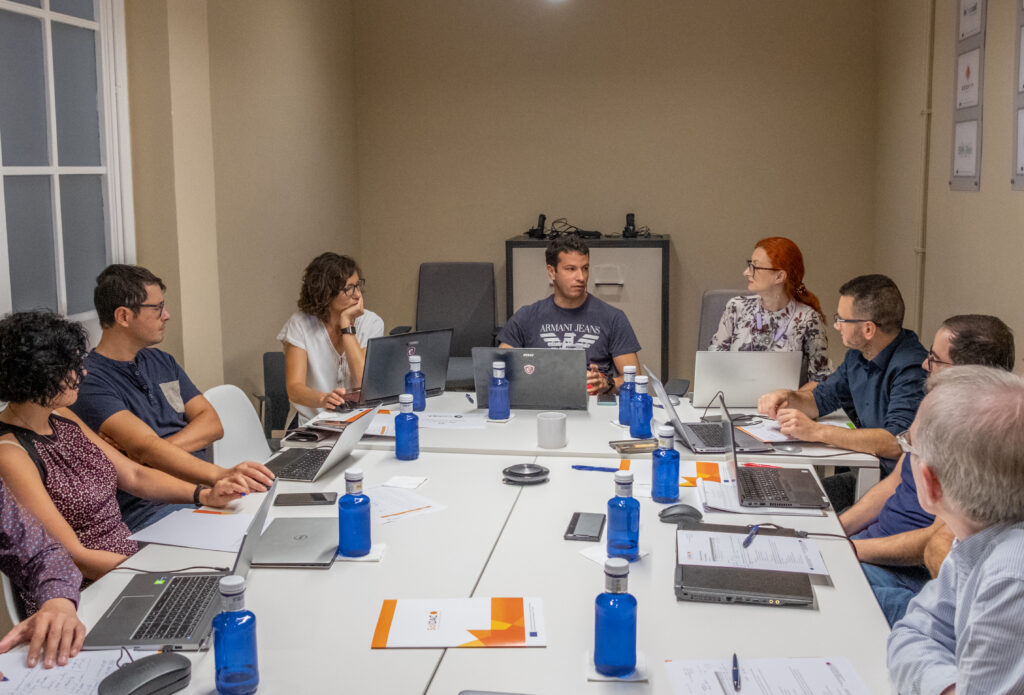On September 22nd and 23rd, the first meeting took place as the beginning of the European Project SolDAC in Barcelona. This research and innovation project, led by the Catalan company COMET GLOBAL INNOVATION, will develop a prototype that will reduce the footprint of carbon, through the capture and direct conversion of CO2 from the atmosphere.

SolDAC, Efficient Electrochemical System
The main objective of this research project is to obtain products that are climatically neutral thanks to the combination of solar energy and air, managing to transform CO2 from environment into ethanol and ethylene (by-products of carbon) to achieve a chemical industry cleaner.
The SolDAC project has a duration of 3 years and is financed by the European Union and by Uk Research and Innovation Funding Service (ISF), within the Horizon Europe Framework Program – Climate, Energy and Mobility and has the participation of four European states: Spain, Belgium, Italy and the United Kingdom. The partners that make up the consortium are: COMET GLOBAL INNOVATION (project coordinator), CONSIGLIO NAZIONALE DELLE RICERCHE, FUNDACIÓ INSTITUT DE RECERCA DE L’ENERGIA DE CATALUNYA, EUROPEAN INNOVATION MARKETPLACE, LOMARTOV, THE UNIVERSITY COURT OF THE UNIVERSITY OF ST ANDREWS, THE UNIVERSITY OF EDINBURGH, and the UNIVERSITY OF LLEIDA.
What Technology Does It Use?
SolDAC is based on the capture and direct conversion of atmospheric carbon using a collector photovoltaic-thermal solar hybrid with spectral division that generates electricity and heat, with a higher efficiency compared to photovoltaic modules and conventional solar collectors. The heat is used thanks to an innovative direct air capture unit (DAC), which eliminates carbon dioxide from the atmosphere. The DAC unit removes carbon dioxide from the air, concentrates it to more than 95% and compresses it to feed the photoelectrochemical conversion unit and a pipeline for carbon dioxide storage. This makes possible to compensate for the footprint of carbon from this process that takes advantage of the entire spectrum of solar radiation to obtain chemical products and allows carbon credits to be obtained, which opens up an opportunity to go beyond climate neutrality and produce value-added products for industry with negative carbon emissions.
Advanced Methodology
The SolDAC project will be carried out through three consecutive stages, complying with a protocol adapted to TRL4 (Technology Readiness Level 4, level of technological maturity 4) that will allow validating the systems in laboratory environments and release the research and innovation of these renewable chemical products and their great potential for an industrial green transition.
Environmental Benefits of this Project
The environmental advantages of the SolDAC project consist of the elaboration of C2 products (ethylene and ethanol by-products) through a climate-neutral process that will allow the earning of carbon credits. This technological prototype will be a step forward for achieving the “zero emissions” objective, making Europe the first circular economy and neutral and sustainable climatically.
SOME DATA OF INTEREST
• Ethylene is one of the main raw materials in the chemical industry and one of the most widely used chemicals in the world, with a rate of annual production of 185 Mt., in the European Union 24.5 Mt.
• The carbon footprint of the bioethanol fuel (depending on the biomass original) can cause up to 90 Mt of CO2 emissions on a global scale.
• Every year, up to 0.2 Gt of CO2 are emitted to produce ethylene derived from fossil fuels.